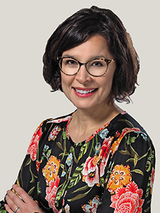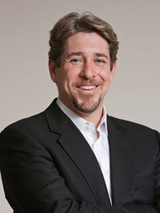Finally: Help for Kinship Caregivers, Guidance for PCPs

Rebecka Rosenquist, MSc, is Health Policy Director at CHOP’s PolicyLab, and David Rubin, MD, MSCE, is Director of PolicyLab and a professor of pediatrics at the Perelman School of Medicine at the University of Pennsylvania.
In 2018, there were more than 2.7 million grandparents and an unknown number of other relatives in the United States caring for children whose parents are not able to do so. Known as “kinship care,” some of these arrangements are within the foster care system, but many more are informal arrangements. The number of kinship caregivers almost certainly grew during the COVID-19 pandemic and from the continuing substance use disorder crisis, making it more important than ever to consider how we can support the needs of this population.

In a welcome step, the U.S. Department of Health and Human Services (HHS) released last year the first National Strategy to Support Family Caregivers. The strategy offers recommendations to build a support system for relatives caring for children whose parents are unable to do so, or those in need of long-term care. The expansive strategy is organized around 5 goals on issues such as increasing awareness of and outreach to caregivers and strengthening services provided to them.
Healthcare providers have an important role to play in achieving these goals, including through connecting families to community programs, safety net program enrollment, and advocating with families in schools. Further, an American Academy of Pediatrics policy statement authored by PolicyLab at CHOP experts recommends that pediatric providers should seek partnership with adult primary care and geriatric physician organizations to develop stronger intergenerational support for kinship families.
What Can a PCP do?
At an individual level, pediatric primary care providers should be aware of the growing involvement of kinship providers in the lives of children and should be prepared to engage families with the support they need to raise their children.
That starts with understanding who the caregivers are who bring children to the office and not just assuming that they are “mom” or “dad.” Identifying a grandparent, an aunt, or an uncle can lead to important conversations about tailoring services to a child’s needs, including addressing prior trauma histories and determining eligibility for services, whether through child welfare or other benefit systems.
The need to support kinship caregivers and families has never been more acute. The new HHS strategy provides an important framework for the pediatric community to follow when addressing the unique needs of kinship families.
Finally: Help for Kinship Caregivers, Guidance for PCPs

Rebecka Rosenquist, MSc, is Health Policy Director at CHOP’s PolicyLab, and David Rubin, MD, MSCE, is Director of PolicyLab and a professor of pediatrics at the Perelman School of Medicine at the University of Pennsylvania.
In 2018, there were more than 2.7 million grandparents and an unknown number of other relatives in the United States caring for children whose parents are not able to do so. Known as “kinship care,” some of these arrangements are within the foster care system, but many more are informal arrangements. The number of kinship caregivers almost certainly grew during the COVID-19 pandemic and from the continuing substance use disorder crisis, making it more important than ever to consider how we can support the needs of this population.

In a welcome step, the U.S. Department of Health and Human Services (HHS) released last year the first National Strategy to Support Family Caregivers. The strategy offers recommendations to build a support system for relatives caring for children whose parents are unable to do so, or those in need of long-term care. The expansive strategy is organized around 5 goals on issues such as increasing awareness of and outreach to caregivers and strengthening services provided to them.
Healthcare providers have an important role to play in achieving these goals, including through connecting families to community programs, safety net program enrollment, and advocating with families in schools. Further, an American Academy of Pediatrics policy statement authored by PolicyLab at CHOP experts recommends that pediatric providers should seek partnership with adult primary care and geriatric physician organizations to develop stronger intergenerational support for kinship families.
What Can a PCP do?
At an individual level, pediatric primary care providers should be aware of the growing involvement of kinship providers in the lives of children and should be prepared to engage families with the support they need to raise their children.
That starts with understanding who the caregivers are who bring children to the office and not just assuming that they are “mom” or “dad.” Identifying a grandparent, an aunt, or an uncle can lead to important conversations about tailoring services to a child’s needs, including addressing prior trauma histories and determining eligibility for services, whether through child welfare or other benefit systems.
The need to support kinship caregivers and families has never been more acute. The new HHS strategy provides an important framework for the pediatric community to follow when addressing the unique needs of kinship families.